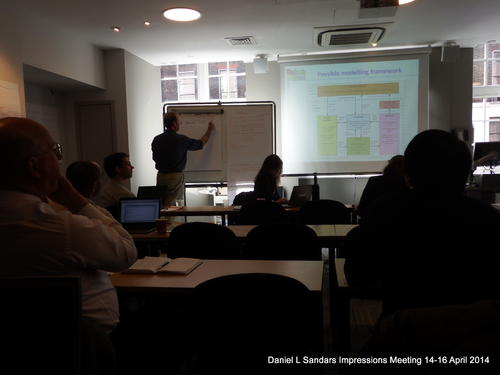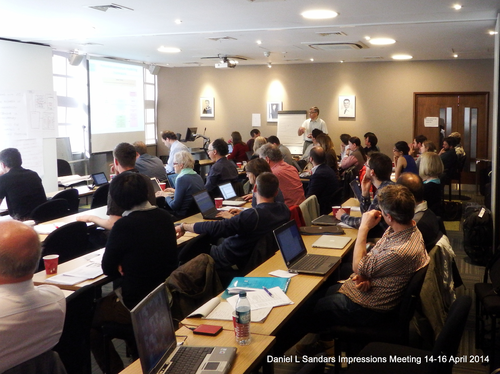The first IMPRESSIONS Modeller’s Meeting took place between 14-16 April 2014 in London, UK to develop a detailed work plan for the climate change impact, vulnerability and adaptation modelling within the project.
The target of the meeting was to formulate an integrated modelling framework and to design protocols for implementing that framework. These protocols aim to include an initial set of model runs that are linked to the requirements of the five multi-scale case studies and the different IMPRESSIONS Work Packages.

A conceptual framework for the modelling was agreed during the meeting and a work plan was drafted to further develop these first steps into a detailed modelling framework, which specifies the linkages between scenarios, sectoral and cross-sectoral models and scales of application across the five case studies (global, Europe, Iberia, Scotland and Hungary).
IMPRESSIONS includes a suite of existing climate change impact and adaptation models from European and international centres of excellence, including global and regional integrated assessment models, process-based models, simplified meta-models and mixed qualitative-quantitative participatory models. These will be combined with new models that overcome the limitations of conventional impact models, which fail to account for individual behaviour in the real world. These agent-based models will simulate adaptation as a process driven by the behaviour of individual decision-makers, firms and institutions that can learn and interact with each other.
 The modelling work in IMPRESSIONS will explore policy and management approaches for developing and implementing integrated solutions under high-end climate change, which harmonise adaptation and mitigation strategies with sustainable development across multiple sectors and scales. The outputs from this modelling work are likely to offer a new set of reasons for people and organisations to reconsider their approach to climate change policies and actions, including a more precise justification for early, aggressive mitigation, and the reframing of the climate and development challenge.
The modelling work in IMPRESSIONS will explore policy and management approaches for developing and implementing integrated solutions under high-end climate change, which harmonise adaptation and mitigation strategies with sustainable development across multiple sectors and scales. The outputs from this modelling work are likely to offer a new set of reasons for people and organisations to reconsider their approach to climate change policies and actions, including a more precise justification for early, aggressive mitigation, and the reframing of the climate and development challenge.